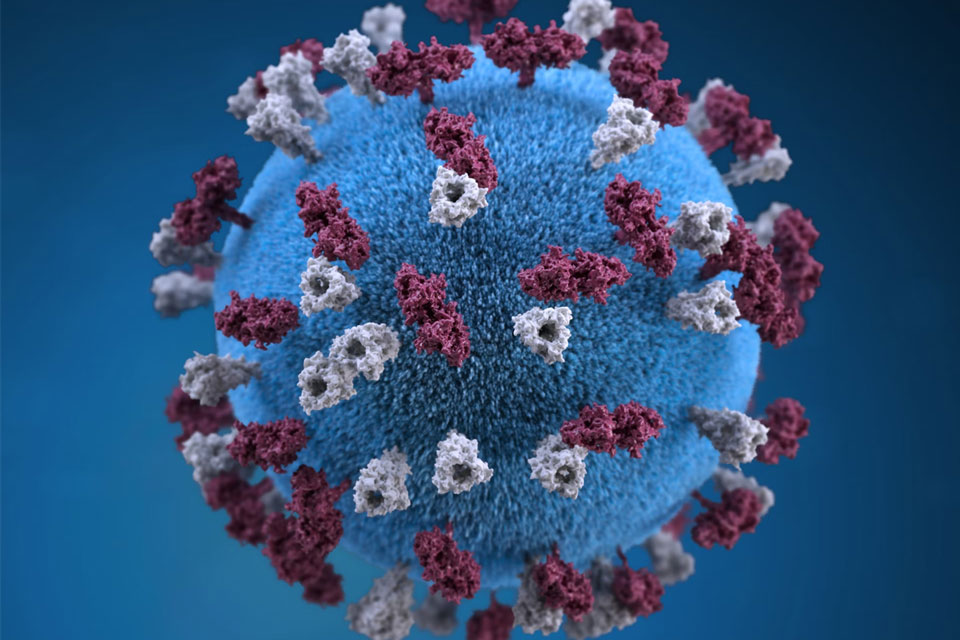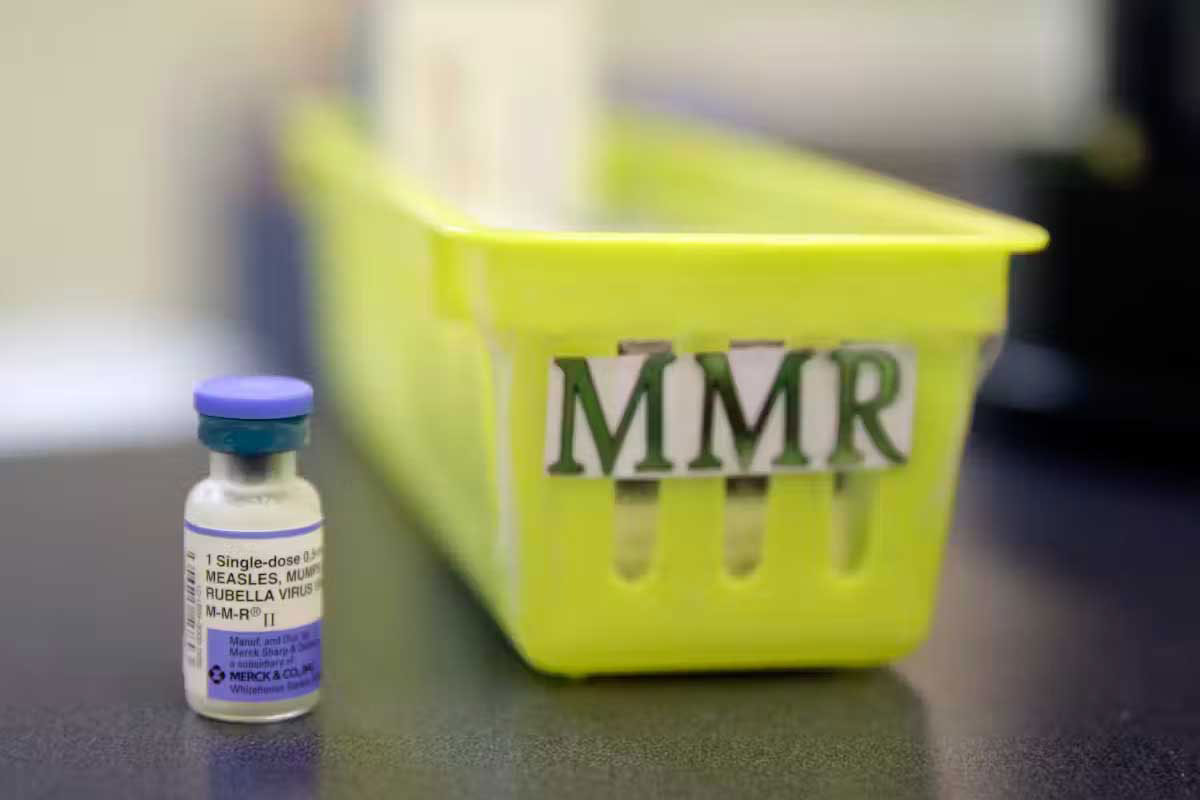Can MMR vaccines cause autism?
In 1998, concerns were raised about a possible link between the MMR vaccine and autism. Since then, many large, high-quality studies have shown the vaccine is safe. Here’s what the evidence says.
- 10 September 2025
- 9 min read
- by Linda Geddes

Four key studies that show the MMR vaccine is safe
- A Population-Based Study of Measles, Mumps, and Rubella Vaccination and Autism. This 2002 study analysed more than 500,000 Danish children and found no link between the MMR vaccine and autism, regardless of when kids received it, or factors like age, sex, birth weight or family income.
- Measles, Mumps, Rubella Vaccination and Autism: A Nationwide Cohort Study. This 2019 study of more than 650,000 children found no increased autism risk in those who received the MMR-vaccine – including kids with a family history of autism or other risk factors for the condition.
- Vaccines for measles, mumps, rubella, and varicella in children. This 2021 Cochrane review of 138 studies covering more than 23 million children found both the MMR and MMRV (measles, mumps, rubella and varicella) vaccines highly effective, with no link to autism or serious conditions, though there’s a very small risk of febrile seizures and a rare blood-clotting disorder (far lower than after natural infection).
- Vaccines are not associated with autism: An evidence-based meta-analysis of case-control and cohort studies. This 2014 meta-analysis of more than 1.25 million children found no link between vaccines – including MMR and those containing the preservative thimerosal – and autism.
Vaccines are one of the most powerful tools we have to protect our health, and the measles, mumps and rubella (MMR) vaccine is no exception. Over the years, it has prevented countless outbreaks, while measles vaccination has saved an estimated 94 million lives since 1974 alone.
Yet, like many vaccines, it has drawn some questions and concerns about safety from a minority of people – especially around a suggested link to autism. Responding to such concerns, researchers have conducted numerous large and rigorous studies to assess whether there’s a link.
The results are definitive: the MMR vaccine is safe and does not cause autism.
Here’s how that science unfolded.
Combined vaccine
The measles, mumps and rubella (MMR) vaccine was first licensed for use in the US in 1971, followed by other countries in subsequent years and decades. This combined vaccine replaced three individual shots against measles, mumps and rubella that had previously been in widespread use, with all the evidence suggesting that it was effective and well tolerated.
However, in 1998, a research paper was published in The Lancet by a British gastroenterologist called Andrew Wakefield, describing 12 young children who had been developing normally but then experienced a “regressive developmental disorder”, including the loss of communication skills and signs of intestinal inflammation.
In eight cases, parents or doctors linked the onset of these problems to the MMR vaccine, given days or weeks earlier.
The study was tiny, relied on parents’ recall of events and didn’t include a control group of children without autism, so it couldn’t prove causation. Wakefield acknowledged this in his paper, calling for further research.
Researchers have conducted numerous large and rigorous studies to assess whether there’s a link.
The results are definitive: the MMR vaccine is safe and does not cause autism.
However, speaking at a press conference, he told reporters he believed that the measles, mumps and rubella vaccines should be given separately, rather than as a combined shot.
Media reporting of Wakefield’s findings prompted a significant drop in MMR vaccination coverage some countries, and a subsequent spike in measles cases. For instance, in the UK, where vaccine uptake fell from a peak of 92% in 1995–96 to below 80% by 2003, 442 measles cases were reported in 2003 – three times the number in 1996.
Even though the study has since been widely discredited and fully retracted by The Lancet, it raised a question that many researchers took seriously, launching their own studies to investigate a possible link between the MMR vaccine and autism in response.
Why was Andrew Wakefield’s MMR research discredited and retracted?
In 1998, the publication of Andrew Wakefield’s research paper claiming a link between the MMR vaccine and autism triggered a health scare that still reverberates today. Twelve years after publication, the study was fully retracted, after an investigation by the UK’s General Medical Council (GMC) found him guilty of serious professional misconduct. He was subsequently struck off the UK’s medical register, meaning he could no longer work as a doctor.
The investigation found that Wakefield had carried out invasive and uncomfortable procedures on children without proper ethical approval, clinical justification, or the appropriate paediatric qualifications.
He had also failed to disclose financial conflicts of interest – including that his research was funded by lawyers representing families who believed the MMR vaccine had caused their children’s autism and were preparing lawsuits against its manufacturer, and that Wakefield had filed a patent for an alternative measles vaccine.
A separate investigation by the British Medical Journal found that Wakefield had altered numerous details about the children’ medical histories to support his claim of having identified a new syndrome of autism and bowel disease.
What did these follow-up studies find?
One of the first such studies was published in The Lancet in 1999. It was commissioned by the UK’s Medicines Control Agency to investigate whether there had been any increase in autism cases in Britain following the introduction of the MMR vaccine in 1988.
The study, led by a paediatrician called Brent Taylor at London’s Royal Free Hospital, identified 498 children with autism, born since 1979 in England’s North Thames region. After examining the children’s medical and vaccination records, Taylor and colleagues concluded that, while the number of autism cases had steadily increased since 1979, there had been no sudden step-up after the MMR vaccine was introduced.

They also found that children developed autism at broadly the same age, regardless of whether they received the vaccine and when, and saw no pattern of developmental regression in the months after vaccination. “Our analyses do not support a causal association between MMR vaccine and autism,” the authors said.
In 2002, a much larger study published in The New England Journal of Medicine reached a similar conclusion. It examined data from 537,303 children born in Denmark between 1991 and 1998, 82% of whom had received the MMR vaccine.
Like Taylor’s study, it found no evidence of an increased risk of autism or autism spectrum disorders among children who received the MMR vaccine, even after taking factors like a child’s age, sex, family income, birth weight and how early they were born into account. The timing of the vaccine also made no difference.
Could there be subgroups of children who are more susceptible to autism?
Since these early studies, there have been numerous other large studies investigating whether MMR is linked to autism and finding no link.
One criticism levied against some of these studies was that, even though they found no evidence of the vaccine triggering autism in the general population, small subgroups of children might be more susceptible.
In 2019, Dr Anders Hvidd at the Statens Serum Institut in Copenhagen, Denmark, and colleagues published one of the largest and most definitive studies on MMR and autism to date, which specifically addressed this concern.
Have you read?
Analysing data from more than 650,000 children born in Denmark between 1999 and 2010, it found no evidence that the risk of autism was higher in vaccinated children compared to unvaccinated children – including those with a family history of autism or other risk factors, such as being born to older parents, a mother who smoked during pregnancy or premature birth.
The researchers also looked for any clustering of ‘regressive autism’ – where children appear to be developing normally, then lost skills such as language or social interaction. They found no evidence of this among vaccinated children.
What about contradictory studies linking MMR to autism?
Alongside these extremely large and well-designed studies, there have been other, smaller studies, claiming to have found evidence of a link.
The best way to make sense of studies with apparently contradictory results is to carefully gather all the available research, check it against clear standards, and judge how trustworthy each study is.
Cochrane Reviews are considered the gold standard for such assessments in health care and since 2005 Cochrane researchers have regularly reviewed and updated the evidence regarding MMR vaccines and autism.
Their most recent update was published in 2021. As well as assessing whether the MMR vaccine caused harmful effects, it also looked at a related vaccine called MMRV, which protects children against varicella (chickenpox), as well as measles, mumps and rubella.
After examining 138 studies involving more than 23 million children, the Cochrane researchers concluded that these vaccines were highly effective at preventing measles, mumps, rubella and chickenpox – with no evidence of an increased risk of autism, brain swelling (encephalitis), or any other condition claimed to have been linked to these vaccines.
There was, however, evidence of a very small risk of fits due to fever (febrile seizures) around two weeks after vaccination – equivalent to about one seizure for every 1,150 to 1,700 MMR doses given.
Though alarming, febrile seizures generally don’t cause long-term health problems. The study also identified a very small risk – equivalent to one case per 25,000–40,000 doses – of a condition called idiopathic thrombocytopenic purpura, where the blood doesn’t clot normally. The risk of developing this is much higher after natural infection with measles, mumps or rubella.
Are any vaccine ingredients linked with autism?
Over the years, concerns have also been voiced about whether certain vaccine ingredients, such as the preservative thimerosal, might be linked to the condition.
After examining 138 studies involving more than 23 million children, the Cochrane researchers concluded that these vaccines were highly effective at preventing measles, mumps, rubella and chickenpox – with no evidence of an increased risk of autism, brain swelling (encephalitis), or any other condition claimed to have been linked to these vaccines.
Another type of study that’s useful for answering a question like this is a meta-analysis. It combines data from multiple independent studies to reach a conclusion with greater statistical power than any single study alone. Doing this can help to reveal whether any observed associations are real or just random, as well as providing a more precise estimate of risk.
One of the most widely cited meta-analyses on vaccines and autism was published in the journal Vaccine in 2014. Researchers combined data from more than 1.25 million children across five high quality studies, as well as reviewing data from nearly 10,000 children in five additional ‘case control’ studies.
These studies compared children with autism to those without, checking whether it was more common in kids who had received the MMR vaccine or vaccines containing thimerosal or mercury. The results showed no link between vaccination and autism or autism spectrum disorder.
Scientists haven’t limited research to these ingredients either: this past summer a large-scale Danish study encompassing 1.2 million children over two decades looked into the safety of aluminium – which is sometimes used in tiny amounts to boost a vaccine’s effectiveness – in vaccines.
The research concluded that there was no link between exposure to aluminium in vaccines and a wide range of chronic diseases, including autism, asthma, allergies or autoimmune disorders.
Taken together, this body of evidence is remarkably consistent: the MMR vaccine does not cause autism. While a small number of children may experience mild, short-lived side effects such as fever, or fever-related seizures, the risks are tiny compared to those associated with catching measles, mumps or rubella.
These diseases used to kill or disable thousands of children each year, and the pathogens that cause them haven’t gone away: this is why we see measles outbreaks in populations where vaccine coverage has fallen. The MMR vaccine is a powerful way to ensure everyone stays protected.








